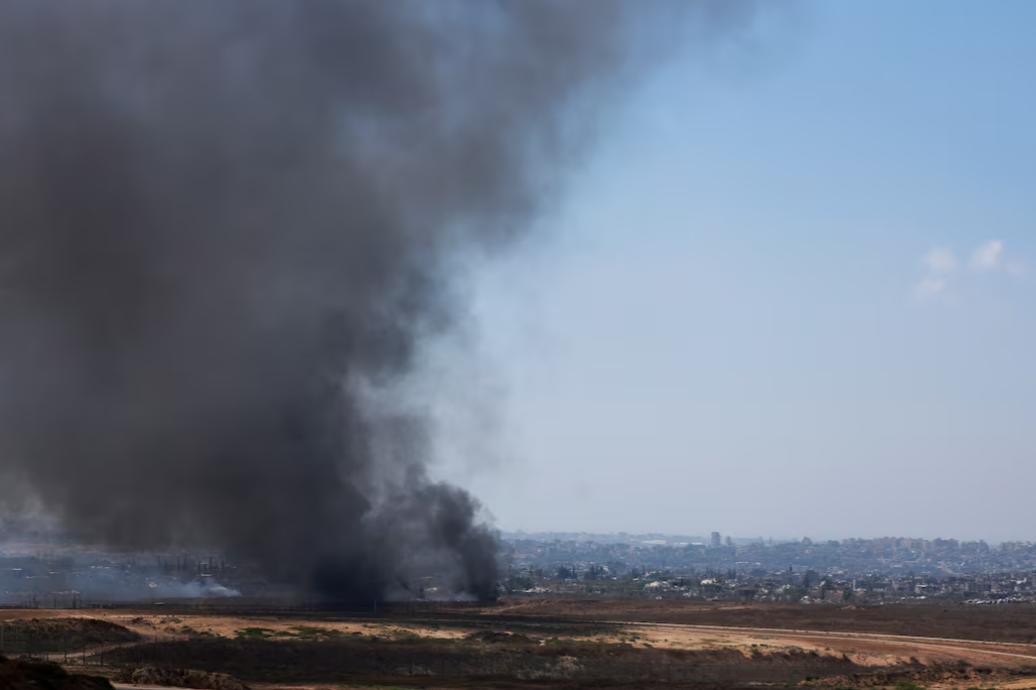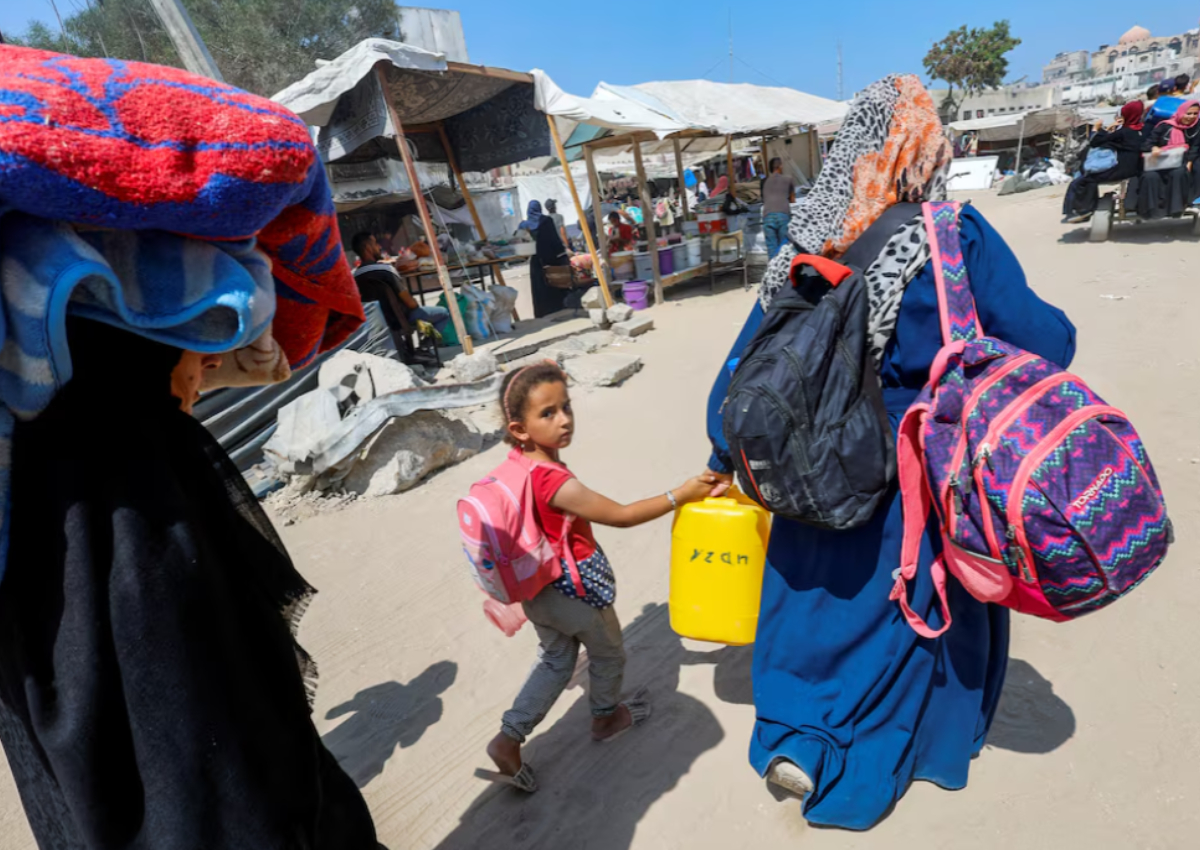Thousands flee their homes as Israeli forces bomb southern Gaza


CAIRO/GAZA — Israeli forces bombarded several areas of the southern Gaza Strip on Tuesday (July 2) and thousands of Palestinians fled their homes in what could be part of a final push of Israel's intensive military operations in nine months of war.
Eight Palestinians were killed and dozens wounded, health officials said. Israel's military said that two soldiers had been killed in battle a day earlier.
Israel's leaders have said they were winding down the phase of intense fighting against Hamas, the Islamist group that has governed Gaza since 2007, and would soon shift to more targeted operations.
Later on Tuesday, 17 Palestinians were killed in Israeli tank shelling of a street in the densely populated Zeitoun neighbourhood in Gaza City in the north of the Strip, medics said. Footage on some Palestinian social media that Reuters was not immediately able to verify showed the scene at a local market, with bread scattered on a floor stained with blood.
The Israeli army ordered residents of several towns and villages in eastern Khan Younis to evacuate their homes on Monday, prior to tanks re-entering the area the military had left several weeks ago.
Thousands who had not heeded the call were forced to flee their homes in the dark overnight, as Israeli tanks and planes bombed Karara, Abassan and other areas that had been named in the evacuation orders, residents and Hamas media said.
"Where will we go?" said Tamer, a 55-year-old businessman, who has been displaced six times since Oct 7.
"Every time people go back to their homes and begin to rebuild some of their lives even on the rubble of their houses, the occupation sends the tanks back to destroy what is left," he told Reuters via a chat app.
The Israeli military said its forces had struck areas in Khan Younis from where around 20 rockets had been fired on Monday. Targets included weapon storage facilities and operational centres, it added.
It said measures were taken before the strikes to enable civilians to evacuate the area. The military has accused Hamas of using civilian infrastructure and the wider population as human shields. The Islamist group denies that.
Islamic Jihad, an allied group of Hamas, said it was responsible for firing the rockets.

Israel, which has been under growing international pressure to relieve the humanitarian crisis in Gaza, said on Tuesday it connected a power line to a desalination plant in the enclave to provide additional drinking water.
Production will jump fourfold to 20,000 cubic metres of drinking water per day from, the Israeli military said.
Though that is far from enough to supply the population of Gaza, Israeli officials said it was significant.
"It'll be quite a game changer in terms of addressing immediate sanitation issues and access to water resources," said an Israeli defence official, adding that it was part of a wider humanitarian effort pushed by Defence Minister Yoav Gallant.
The war in Gaza began when Hamas burst into southern Israel on Oct 7, killed 1,200 people and took around 250 hostages, including civilians and soldiers, back into Gaza, according to Israeli tallies.
The offencive launched by Israel in retaliation has killed nearly 38,000 people, according to the Gaza health ministry, and has left the heavily built-up coastal enclave in ruins.
The Gaza health ministry does not distinguish between combatants and non-combatants, but officials say most of the dead are civilians. Israel says 320 of its soldiers have been killed in Gaza and that at least a third of the Palestinian dead are fighters.
Herzi Halevi, Israel's chief of general staff, said 900 Hamas militants, including commanders, have been killed by Israeli forces in the Rafah Brigade and the current effort is focused on destroying "terrorist" underground infrastructure, which takes time.
"This is a long campaign," he said. "With determination and perseverance we are accomplishing our missions and wearing down the other side."
Within the areas subject to evacuation orders was the European Gaza Hospital, which serves both Khan Younis and Rafah, and medical officials had to evacuate patients and families who had taken shelter in the facility, witnesses and medics said.

Some residents headed west towards the Mawasi area via the beach, which is designated as a humanitarian area but is overcrowded by displaced families. Some slept in the street as they could not find shelter.
Israel says that its operation in Rafah, in southern Gaza near the border with Egypt, that was meant to stamp out Hamas in its final redoubt will soon be concluded.
After the intense phase of the war is over, its forces will focus on smaller-scale operations meant to stop Hamas from regrouping, officials say.
Prime Minister Benjamin Netanyahu said Israel was nearing its goal of destroying the military capabilities of Hamas.
Hamas and Islamic Jihad continue to stage attacks against Israeli forces operating inside Gaza and fire rockets into Israel. Hamas says Israel has failed to achieve the goals of the war and the group is ready to fight for years.
Efforts to secure a ceasefire and the release of hostages in Gaza have stalled. Hamas says any deal must end the war and bring a full Israeli withdrawal from Gaza. Israel says it will accept only temporary pauses in the fighting until Hamas is eradicated.
ALSO READ: Israel's next headache: Who will run post-war Gaza